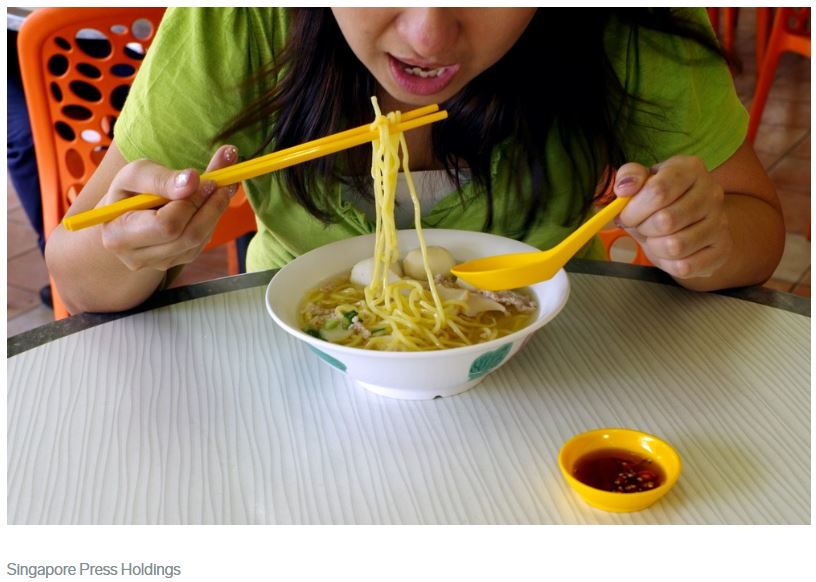90% of Singaporeans are consuming way too much salt, and it could be putting their health at risk
Singaporeans are ingesting way too much salt and sugar for their own good, a nation-wide survey has found.
The Health Promotion Board’s (HPB) National Nutrition Survey 2018 found that the average Singaporean consumed about 9g of salt daily, 4g more than the recommended amount. The scary part? This applies to 90 per cent of people in the country.
HPB attributed this primarily to salt and sauces added during stir-frying or marinating, as well as the addition of soya sauce and/or stock powder when cooking. As a matter of fact, these make up 75 per cent of salt in the diet of an average person.
According to Health Hub, eating too much sodium can increase one’s blood pressure, and increase one’s risk for stroke and kidney disease.
But that’s not all. Singaporeans are also facing another problem – sugar.
Singaporeans’ total sugar intake was at 60g this year, an increase of 1g from 2010, when the survey was last carried out.
Apparently, the bulk of sugar in food items does not lie in drinks, but from food such as confectionery and desserts.
Nonetheless, pre-packaged sugar-sweetened drinks remain the single largest source of sugar in the diet of Singaporeans, HPB said.
Health Hub reports that extra sugar intake provides empty calories with little nutritional value. This could lead to excess energy intake, weight gain and obesity, which in turn increases one’s risk of heart disease, stroke and high blood pressure.
Eating less and eating better

- The Straits Tmes
But all hope is not lost. While Singaporeans are shifting towards richer, sweeter and saltier foods, they are also eating less and their diet quality has improved over time.
The survey found that the average calorie intake had gone down from 2,600kcal in 2010, to 2,470kcal this year (though this is still higher than in 2004).
Also, not only are Singaporeans consuming fewer carbohydrates, they are shifting from refined to unrefined carbohydrates as well.
Over the last eight years, the proportion of unrefined carbohydrates out of total carbohydrates in the Singapore diet went up, from 14 to 17 per cent.
The HPB said that this was mainly due to increased consumption of wholegrain, as well as fruit and vegetables. This finding is supported by market trends where sales of wholegrain rice and bread, as well as fruit and vegetables have been on the rise.
Similarly, the dietary quality of fats in the Singaporean diet has improved, with Singaporeans gravitating towards consuming unsaturated fat instead of saturated fat. In fact, the proportion of saturated fat out of total fat decreased from 38 per cent in 2010 to 36 per cent this year.
Protein intake was not a problem, with nearly 80 per cent of Singaporeans meeting the daily recommended protein intake.
Source: https://www.businessinsider.sg/90-of-singaporeans-are-consuming-way-too-much-salt-and-it-could-be-putting-their-health-at-risk/


 Thailand
Thailand




